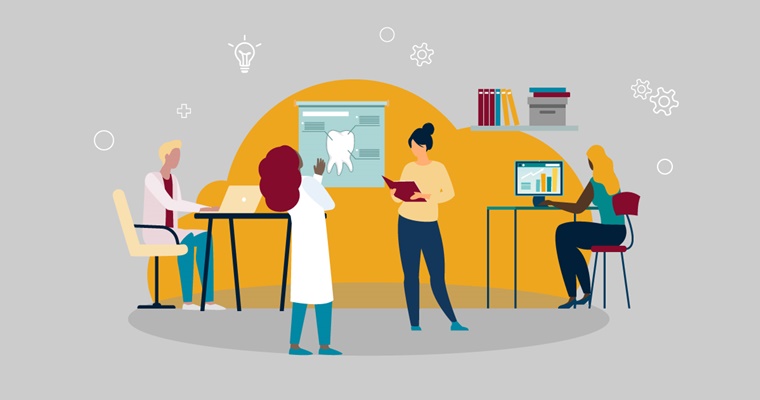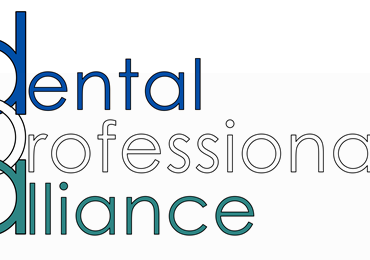Becoming a dental hygienist or dental therapist

Monica Matanda and Jyoti Sumel are both dental therapists working in community dental services. In this second blog post in their series, they describe what you'll need to become a dental hygienist or dental therapist and give some guidance to those considering a career in this field of dental practice.
Both Monica and Jyoti currently split their time between clinical practice and developing their strategic, leadership and management skills as Clinical Fellows.
Getting the right education and training
Our careers, like most, started with education. Historically, dental hygiene and dental therapy courses were separate courses. Most education providers have now combined courses, with graduates qualifying as dental hygienists and dental therapists, but there are still some dental hygiene only programmes.
There’s a variety of courses available, so make sure you have a look around. Most universities now offer a BSc in oral health sciences or dental hygiene and dental therapy. But there are a couple of higher education diplomas, one for dental hygiene and another for dental hygiene and dental therapy. The BSc courses are three years, and foundation or diploma courses are two.
Entry requirements will differ, but to become a dental hygienist or dental therapist you will need a good standard of education, including good GCSEs and three A-Levels, of which biology is desirable. Completing a work placement in a dental practice could also really help when applying for a place at university, as will having any experience as a dental nurse.
If you want to work with people and are good at using your hands, this could be a career for you. Dental hygienists and dental therapists need to be good communicators, give attention to detail, show compassion, have problem-solving skills and good manual dexterity. Through training you will practise your hand-eye coordination, as well as movements to grasp and manipulate small objects.
Registering to practise
Once you have successfully completed your education and training, you will need to register with the GDC before you can practise dentistry in the UK. You will also need to have appropriate indemnity cover.
The role you register for will depend on the course you’ve done. It will either be as a dental hygienist only, or as both a dental hygienist and a dental therapist. We normally refer to this as dual registration, with a few thousand dental professionals registered in this way.
You can deliver services directly to patients
Once qualified and registered, dental hygienists and dental therapists can work in general dental practices, either NHS or private, hospitals and in the community. You can even work with the Royal Navy as a civilian. The types of services and treatments you will be asked to complete are likely to differ depending on where you decide to practise.
You can also work directly with patients. Direct access allows for some dental professionals to provide selected dental treatments and services directly, without the need for a prescription from a dentist. It was first introduced in 2013. Before this time, all patients had to be seen by a dentist before they could be treated under a prescription by any other member of the dental team.
Direct access means dental hygienists and dental therapists can carry out their full scope of practice without a referral. The exceptions are tooth whitening, local anaesthetics, and high fluoride toothpaste and/or varnishes which need a prescription. Having said that, you can obtain a Patient Group Directive or Patient Specific Direction to provide local anaesthetic and fluoride varnish. Direct access is currently not available for NHS dental treatment.
Before carrying out this type of work, dental hygienists and dental therapists must be confident they have the skills and competencies to treat patients directly. The best way to make this assessment is a period of clinical practice working to a dentist’s prescription.
Those who’ve qualified since 2002 will have covered the full scope of practice in their training. Anyone qualifying before this date may not have covered everything, but can of course update on any extra duties through CPD courses, clinical experience and additional training.
Direct access can increase access to care for patients - key as we all work to address the backlog caused by the pandemic. It has also led to some dental hygienists and dental therapists becoming practice owners.
Spend some time with a dental professional
If you are considering a career as a dental therapist or dental hygienist, we strongly recommend shadowing someone in the role. This will provide you with a clear picture of the job role, what working with a variety of patients daily entails, and what you might experience in a typical day. It will give you a feel for the job role and the interactions you will have with patients. Shadowing will give you real insight into the responsibilities of being a dental hygienist or dental therapist.
I (Jyoti) had valuable work experience observing at a dental practice when I was in secondary school. It was three days of shadowing the different areas of the dental practice, from reception to within the clinics. This showed me the ins and outs of how the practice ran and what to expect.
It's what inspired me to choose a career in dentistry.
Look for opportunities to develop within the dental team
I (Monica) started my career in dentistry as a dental nurse, and it was during this time that I was inspired to train as a dental therapist. Working alongside the clinicians in the dental team motivated me to explore the options available.
Join other dental hygienists and dental therapists
Being a member of a professional body can have real benefits, such as networking, learning from others, and help with developing your skills and career. The bodies representing dental hygienists and/or dental therapists are the British Association for Dental Therapists (BADT) and the British Society of Dental Hygiene and Therapy (BSDHT). Both organisations lead on developments in the professions and can offer support with any professional issue. During the COVID-19 pandemic, their support has been outstanding.
Both organisations also offer access to journals, CPD and support for their members. Membership is at a cost, which can be paid annually or monthly. On their websites you will find vacancies, dental updates and more. Student membership is also available for access to support and information.
We’d like to thank the BSDHT and the BADT for their recent support.
Check out their websites for more about becoming a dental hygienist or dental therapist.
 eGDC
eGDC












